Info
Subfamily: Panicoideae
Genus etymology: Setaria = "bearing bristles" [Latin] refering to the bristles of the inflorescence
Species etymology: palmifolia = "palm leaved" [Latin] refering to the leaves resembling those of a young palm plant
Photosynthetic type: C4 (warm season)
Nativity: naturalized - unclear
First recorded in Hawaiʻi: 1903
Map
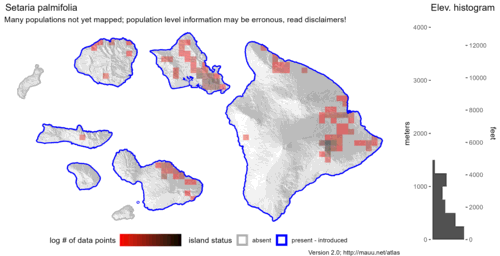

Inflorescence
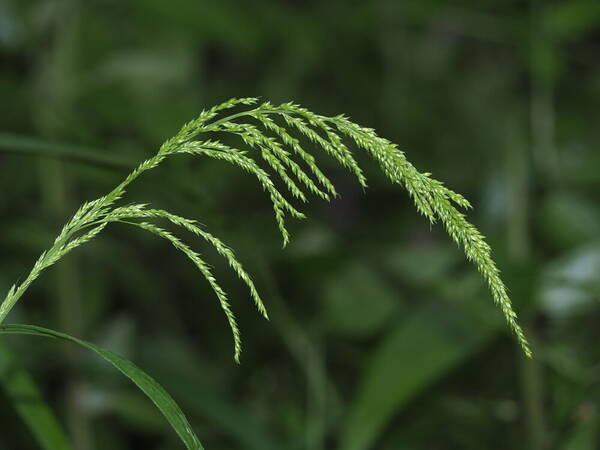
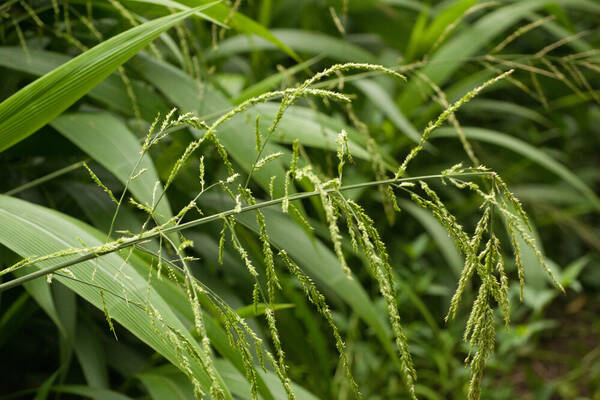
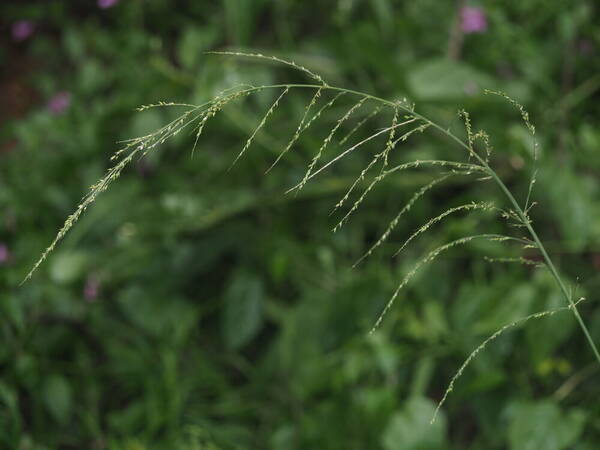
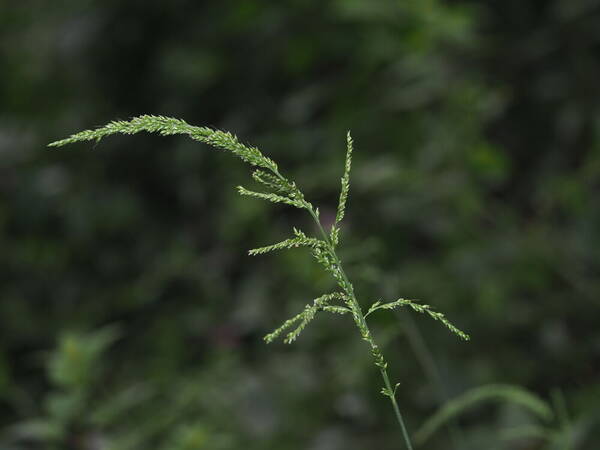
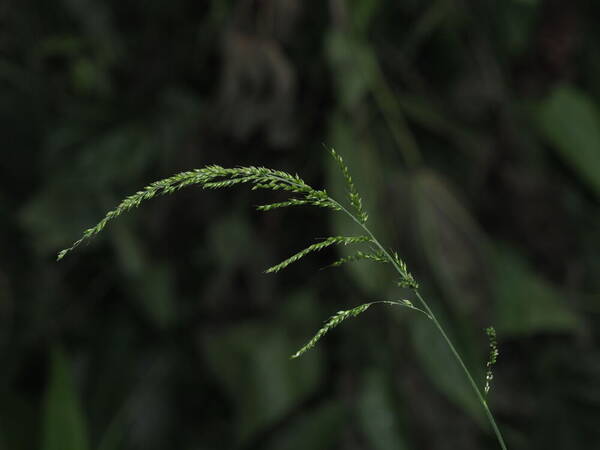
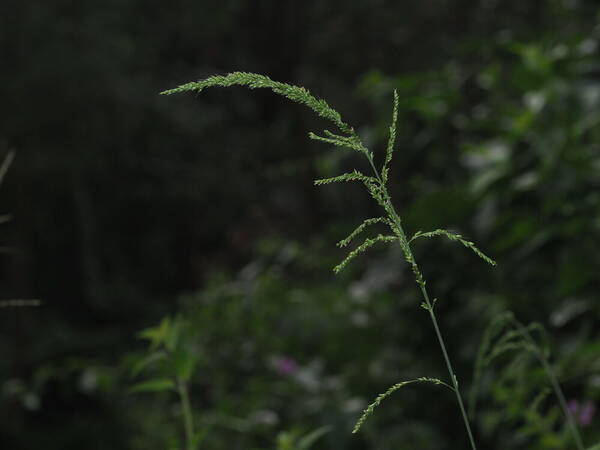
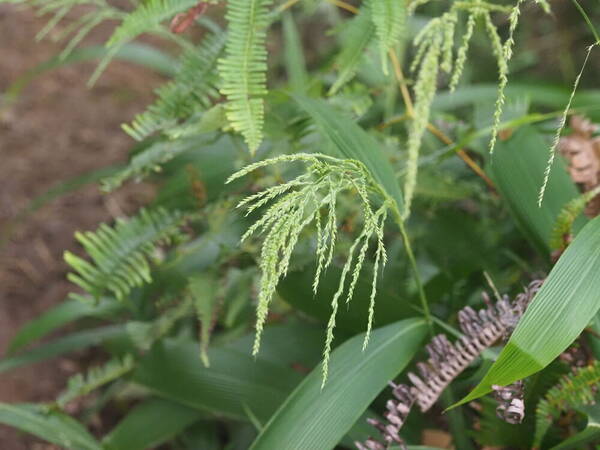
Plant
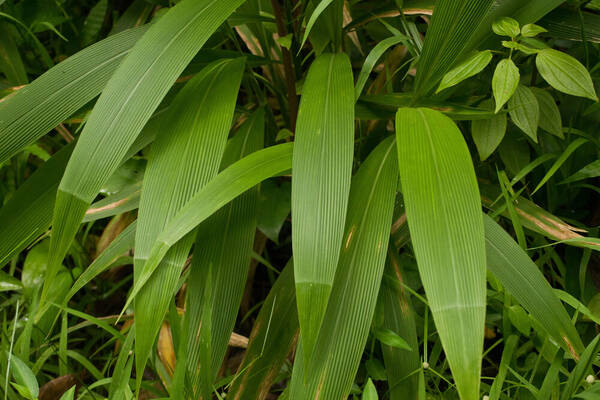
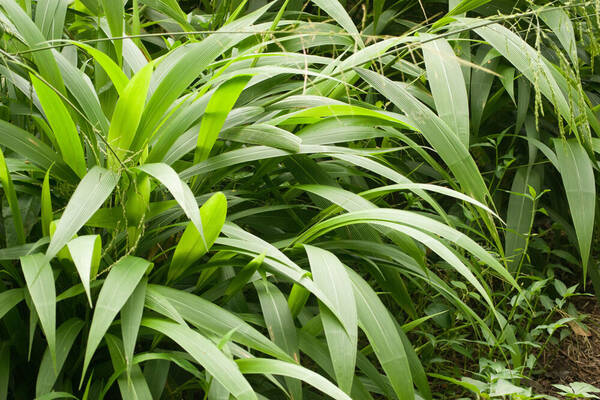
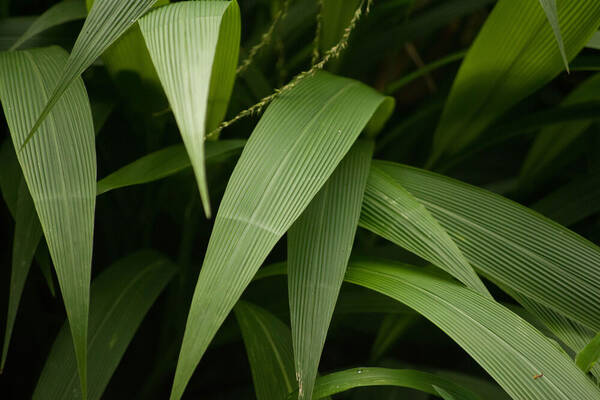
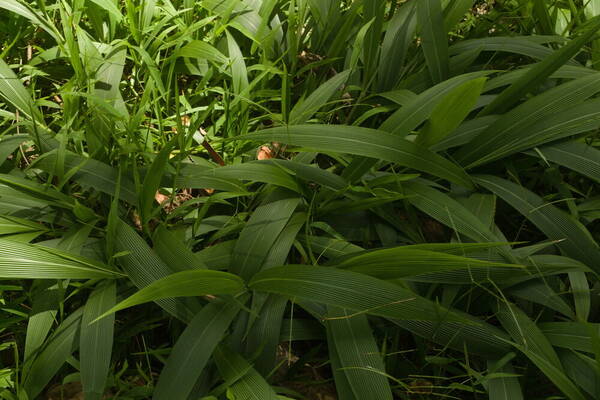
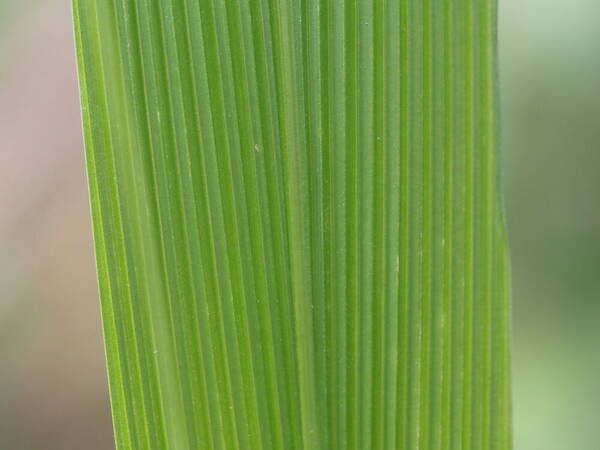
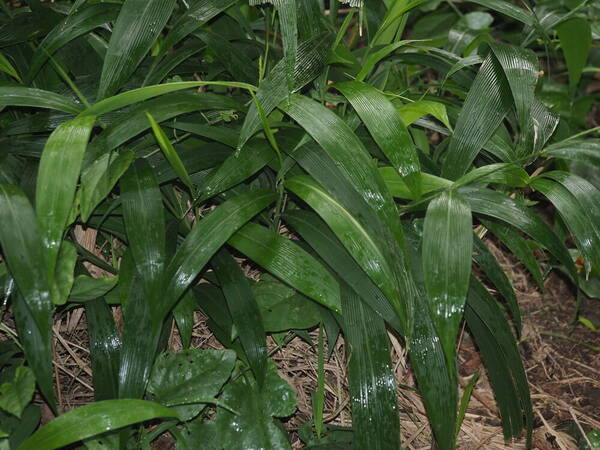
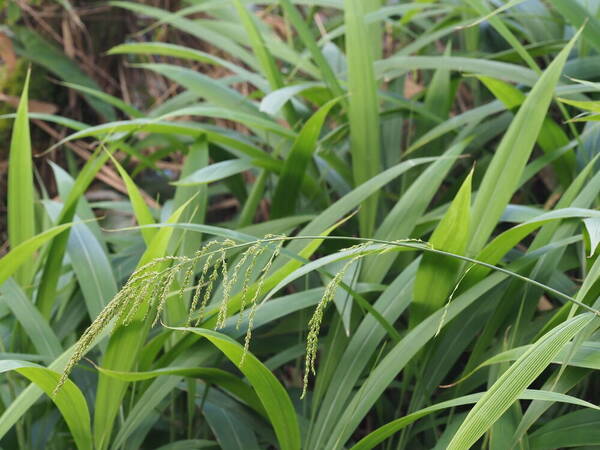
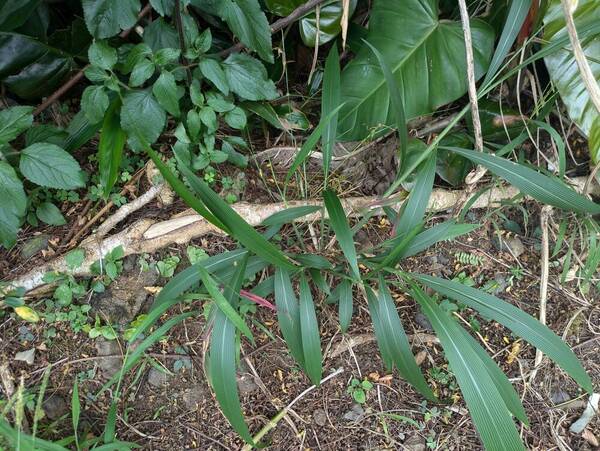
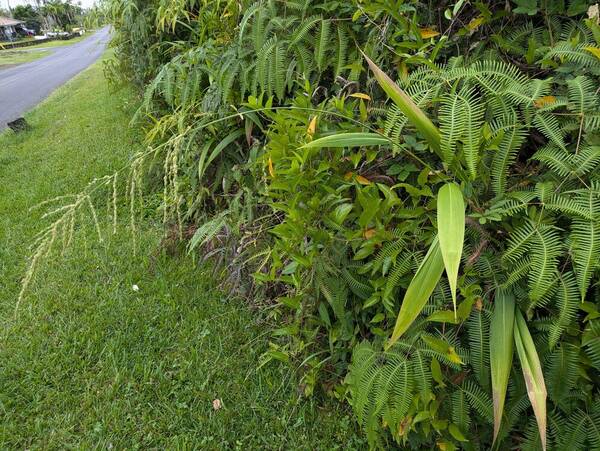
Spikelets
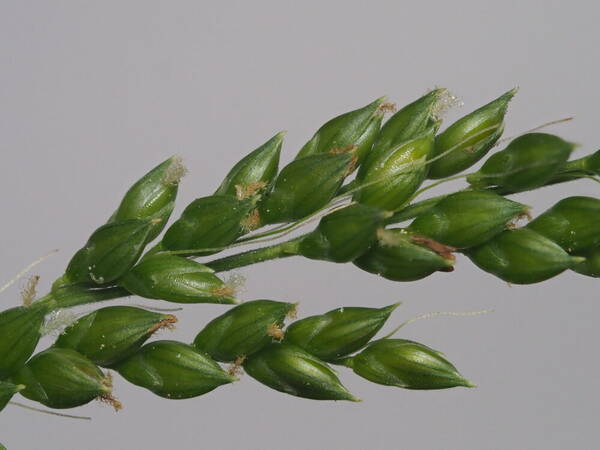
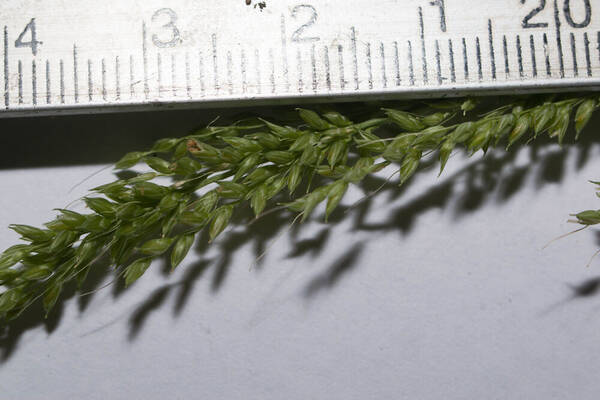
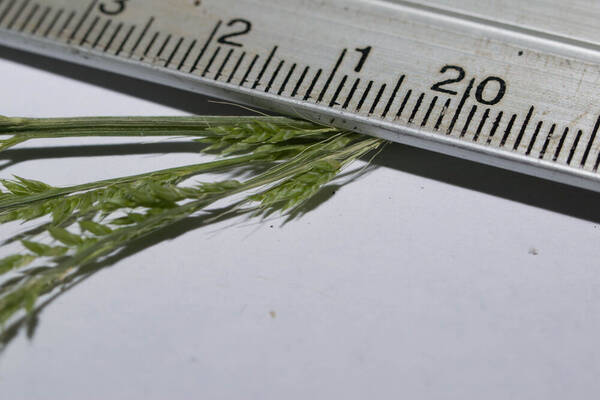
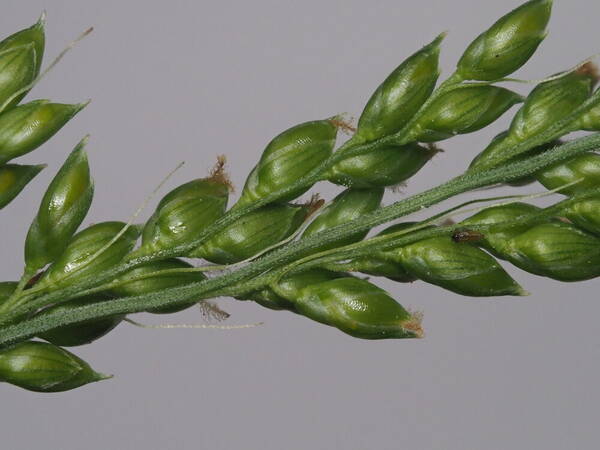
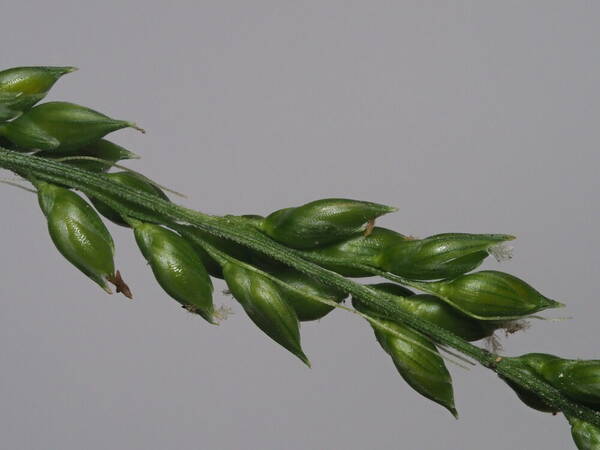
Landscape
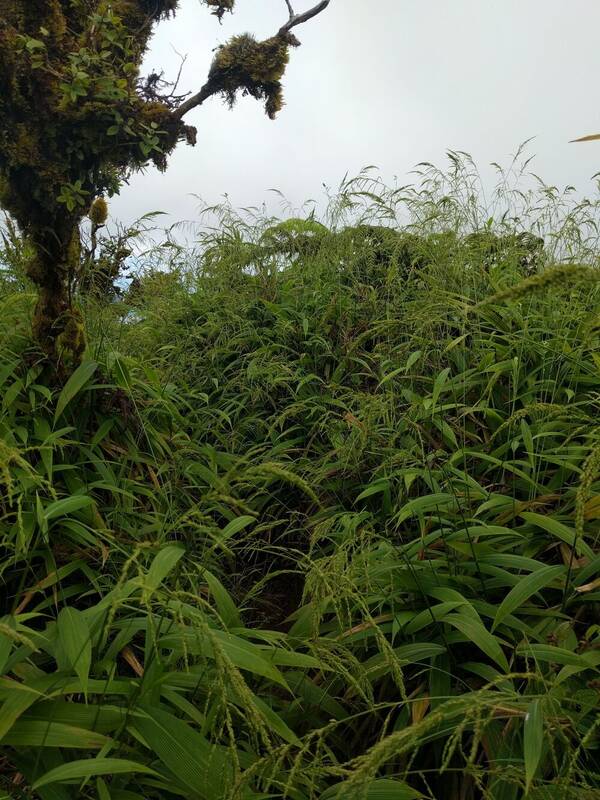
Collar
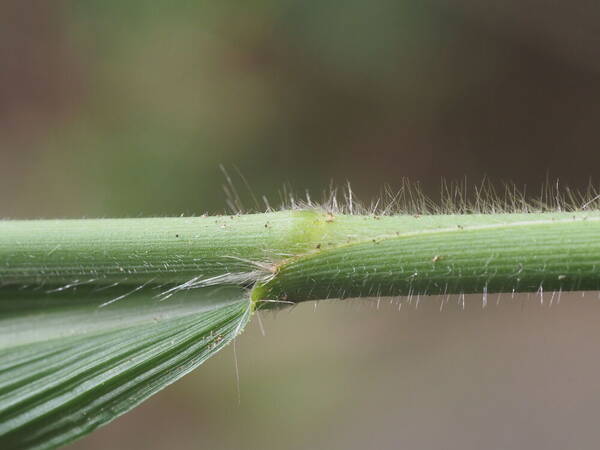
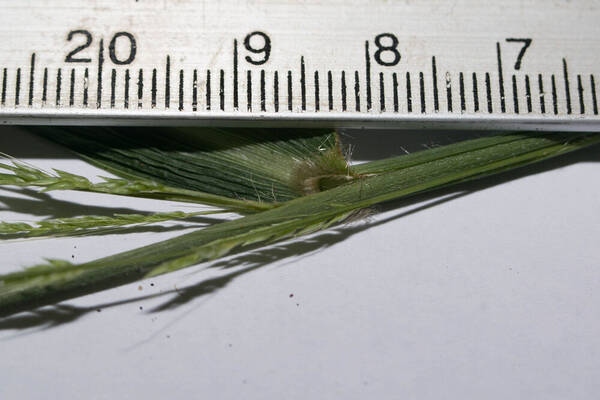
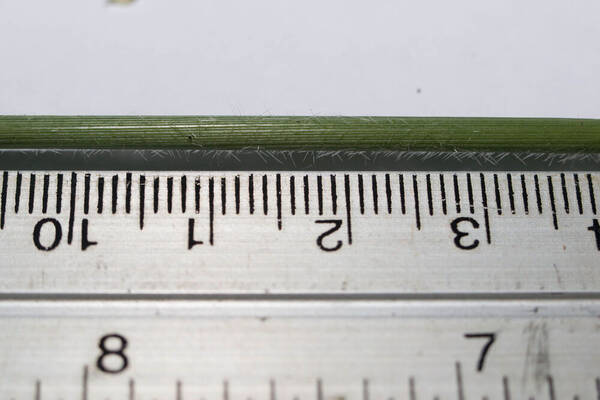
Description
Plants perennial. Culms 1-2 m. Sheaths strigose, margins with stiff hairs; collars hispid; ligules about 2 mm, of hairs; blades to 50 cm long, 20-80 mm wide, plicate, tapering at both ends, abaxial surfaces sparsely strigose, adaxial surfaces short pubescent near the base. Panicles to 40 cm, open; branches 6-10 cm, loosely flexible, axes scabrous; bristles solitary, usually present only below the terminal spikelet on each branch, occasionally below non-terminal spikelets, about 5 mm. Spikelets 3-4 mm, elliptic, acuminate. Lower glumes 1/2 as long as the spikelets, obtuse, 3-4-veined; upper glumes nearly equaling the upper lemmas, 7-veined, acute; lower lemmas exceeding the upper lemmas, 5-veined, apices involute; lower paleas nearly equaling the lower lemmas in length and width; upper lemmas obscurely transversely rugose, yellow, apiculate. 2n = 54.
(Description source: Barkworth, M.E., Capels, K.M., Long, S. & Piep, M.B. (eds.) 2003. Flora of North America, north of Mexico. Volume 25. Magnoliophyta: Commelinidae (in part): Poaceae, Part 2. Oxford University Press, New York. 783 pp http://floranorthamerica.org/Setaria_palmifolia )
Perennials; culms erect, 10-20 dm tall, appressed-hispid below and at nodes. Sheaths papillose-hispid; ligule membranous, margins ciliate, apex rounded to truncate; blades narrowly elliptic, up to 50 cm long, up to 90 mm wide, strongly nerved, plicate, upper surface scabrous, lower surface pubescent, apex acuminate, base narrowed. Panicles open, up to 60 cm long, axis scabrous, nodes puberulent, primary branches numerous, ascending to spreading, up to 20 cm long, slender, scabrous, the bristles subtending the spikelet solitary, ca. 10 mm long; spikelets green, in racemose clusters on short, secondary or tertiary branchlets, lanceolate, ca. 4 mm long, glabrous, pedicels scabrous, 1-4 mm long; first glume ovate, 0.8-1.5 mm long, 3-nerved, apex obtuse; second glume 2-2.5 mm long, 7-nerved; first lemma with a point extending slightly beyond the caryopsis, 5-nerved; first palea narrow, hyaline, ca. 2/3 as long as first lemma; second lemma lanceolate, with a short, somewhat in-curved point, obscurely transversely rugose; second palea similar to second lemma. Caryopsis pale brown, ovoid, compressed, ca. 2 mm long. [2n = 36, 54.]
(Description source: O’Connor, P.J. 1990. Poaceae, pp. 1481–1604. In: Wagner W.L., Herbst D.R. & Sohmer S.H. (eds.)., Manual of the flowering plant of Hawaiʻi. Vol. 2. University of Hawaii Press & Bishop Museum Press, Honolulu )